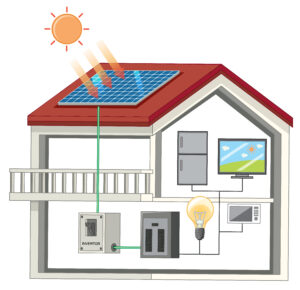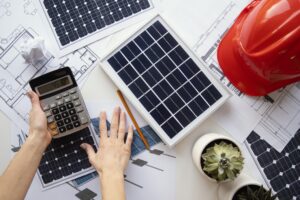As Australia continues its transition towards renewable energy, solar power has taken centre stage in conversations about sustainable living. But before you install panels on your roof, it’s important to ask the right questions, including: What are the advantages and disadvantages of using solar energy?
Here’s a thoughtful breakdown to help you decide if solar power is right for your home or business in 2025.
What Are the Advantages of Solar Energy?
1. Lower Energy Bills
One of the most immediate benefits of solar panels is reduced electricity costs. Once installed, your system generates free energy from the sun, significantly lowering your reliance on the grid. For many Victorians, solar panels paired with a battery can eliminate electricity bills.
2. Government Incentives & Rebates
In 2025, homeowners in Victoria can access:
-
Solar Victoria Rebates (up to $1,400 for panels + battery support)
-
STCs (Small-scale Technology Certificates) from the federal government. These programs reduce upfront costs, making solar more accessible than ever.
3. Energy Independence
With rising electricity prices and growing grid instability, having your solar setup gives you control. Add a battery, and you can store your power for night use or blackout protection.
4. Environmentally Friendly
Solar is a clean, renewable energy source that reduces carbon emissions. A typical 6.6kW system in Melbourne can offset over 250,000 kg of CO₂ over its lifespan, which is equivalent to planting more than 400 trees.
5. Increased Property Value
A solar-equipped home is often seen as a smart investment by buyers. In many parts of Victoria, properties with solar systems sell faster and at a premium.
What Are the Disadvantages of Solar Energy?
1. High Upfront Costs
Although rebates reduce costs, installing solar can still be expensive initially, especially if you include a battery. A full system can range from $5,000 to $15,000, depending on size and quality.
2. Weather-Dependent
Solar panels perform best in direct sunlight. Overcast days, rainy seasons, and shading from trees or buildings can reduce system output.
3. Battery Costs and Maintenance
Batteries help store unused solar energy but remain pricey. Plus, like any appliance, solar systems may require occasional maintenance or inverter replacements after 10–15 years.
4. Not Ideal for All Roofs
Older or shaded roofs may not be suitable for solar installations. Complex roof shapes can also increase installation costs.
Is Solar Worth It in 2025?
 For most Victorian households, the long-term benefits of solar energy outweigh the drawbacks, especially with rising energy costs and generous rebate schemes. Solar becomes even more valuable when paired with energy-efficient appliances or systems like reverse cycle heating and cooling.
For most Victorian households, the long-term benefits of solar energy outweigh the drawbacks, especially with rising energy costs and generous rebate schemes. Solar becomes even more valuable when paired with energy-efficient appliances or systems like reverse cycle heating and cooling.
However, the decision should be made after a personalised assessment of your:
-
Roof condition and orientation
-
Average electricity usage
-
Available budget and access to rebates
-
Interest in long-term energy savings
So, what are the advantages and disadvantages of using solar energy? Like any major home upgrade, the answer depends on your lifestyle, financial goals, and property. But in a state like Victoria where solar energy adoption is thriving. Going solar is not just an eco-friendly choice, but a financially smart one too.
Thinking of Going Solar?

At Victorian Heating and Cooling, we help you make informed energy decisions. From tailored advice to helping you access rebates, our experts ensure your solar journey is smooth from start to finish.
📞 Contact us today for a free quote or to check your eligibility for 2025 solar rebates.
